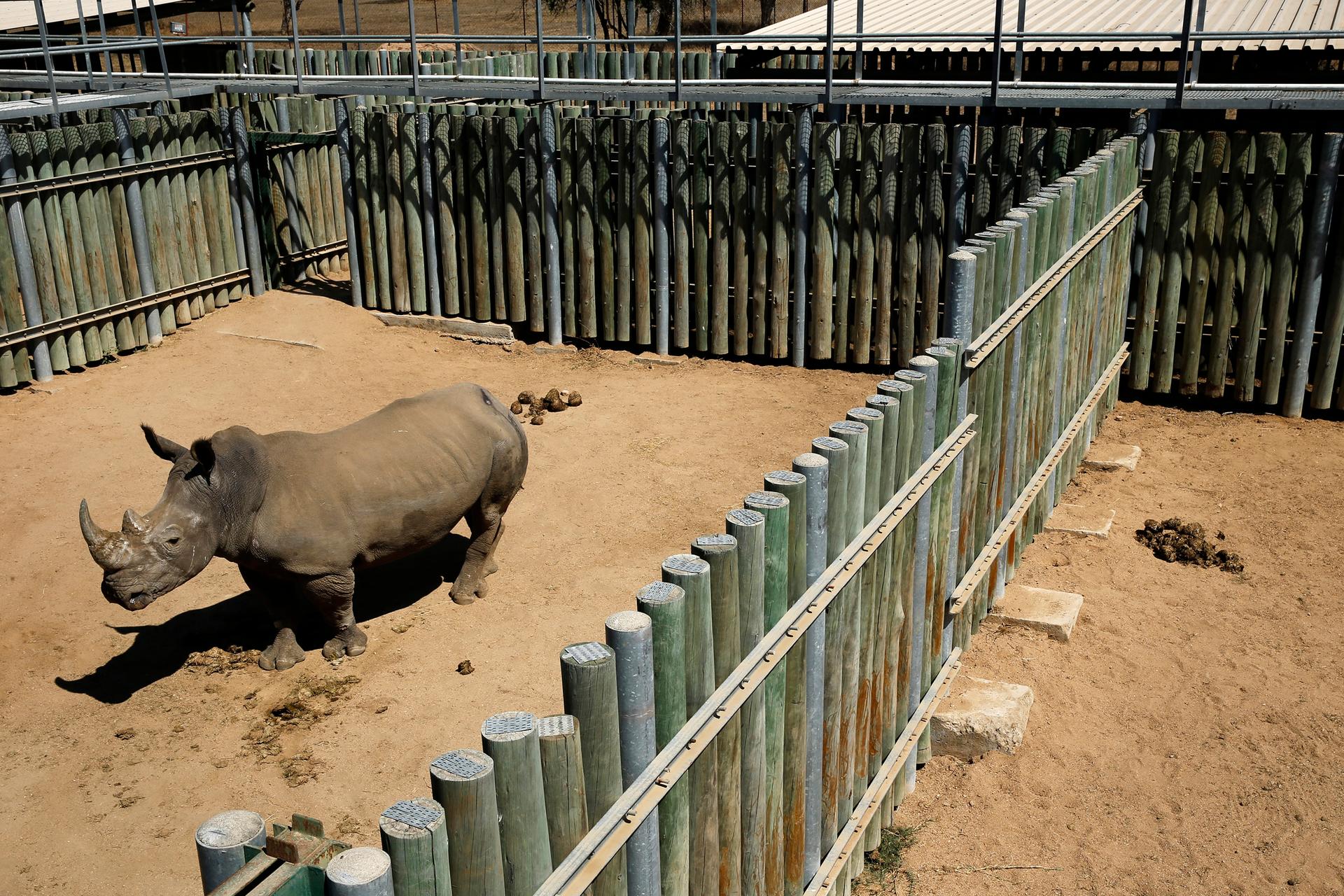The fight against rhino poaching in South Africa finally sees some success
A rhino is kept in an enclosure at the Kruger national park in Mpumalanga province August 26, 2014. Rhino poachers in South Africa now risk giving themselves away when they shoot thanks to a high-tech, gunfire-detection system being piloted in the country's flagship Kruger National Park. The stakes are high, for rhinos are being slain in escalating numbers for their prized horns, alarming both conservationists and the government since wildlife in South Africa is an important tourist draw.
JOHANNESBURG, South Africa — For the first time since the poaching crisis began, the number of rhinos killed in South Africa dipped slightly last year.
While this is a rare bright spot in the fight against illegal trade in rhino horns, neighboring countries have reported an increase in poaching, suggesting that crime syndicates may be expanding their reach.
According to South African government figures released Thursday, 1,175 rhinos were killed by poachers in 2015, compared to 1,215 in 2014. The majority of the rhinos were poached in the Kruger National Park, home to the world's largest rhino population, and their horns smuggled across the border to Mozambique.
Rhino poaching has increased every year in South Africa since 2007, when only 13 rhinos were killed. It is driven by lucrative demand in Vietnam and China where rhino horn is considered “traditional medicine” despite little proof of any medicinal effect.
More from GlobalPost: Last Rhino Standing
Edna Molewa, the South African environment minister, said poaching had "stabilized" due to intense efforts by game rangers and law enforcement agencies.
"Considering that this is in the face of a relentless rise of poaching activity into protected areas, this is good news," she said.
Molewa said that poaching numbers tend to increase over the December holidays, but "the much-feared year-end spike was averted" in 2015.
Sabri Zain, director of policy for TRAFFIC, said that rhino poaching figures “remain unacceptably high” and the problem appears to be spreading.
“While a slight decrease in rhino poaching in South Africa was apparent in 2015, and perhaps the authorities are having some impact on the ground, these numbers are hardly cause for celebration or complacency,” Zain said.
According to the conservation group World Wide Fund For Nature (WWF), at least 130 rhinos were poached in Namibia and Zimbabwe last year, an increase of nearly 200 percent over 2014.
“We desperately need coordinated international efforts by police and other law enforcement agencies to combat the organized criminal syndicates trafficking rhino horn across southern Africa and beyond,” said Jo Shaw, rhino program manager for WWF in South Africa.
“Major transit and consumer countries, such as Mozambique and Vietnam, need to take urgent law enforcement steps to stop the trafficking and buying of illicit wildlife products,” she said.
On Wednesday, a South African court dismissed an application by the environment ministry to appeal against the lifting of a ban on domestic trade of rhino horn.
While private rhino breeders have sought to allow trade, arguing that a regulated form of rhino horn sales would undercut poachers, conservationists and the government fear it would only fuel demand.
